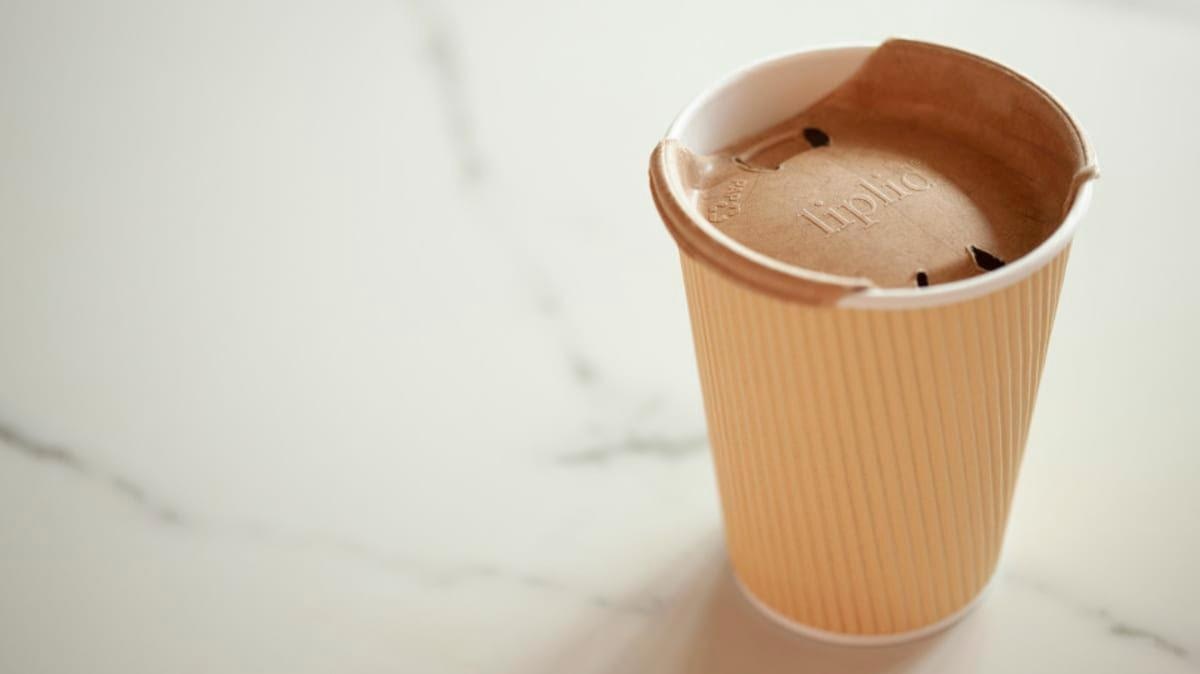Every year, more than 300 billion plastic lids – 1,500,000,000 kg of plastic – are used on our coffee and beverage cups. The lids leak, and we spill and burn ourselves. And because they are made of plastic, the lids are harmful to the environment – and are slated to be banned in the EU. Swedish company UniCup Scandinavia AB has now created an entirely new bio-based lid made of spruce and pine. The “Liplid” is placed inside, rather than on, the cup, and improves the stability and drinking experience of on-the-go beverages.
 The Liplid coffee cup lid is 100% recyclable. Image Credit: UniCup Scandinavia AB
The Liplid coffee cup lid is 100% recyclable. Image Credit: UniCup Scandinavia AB
UniCup Scandinavia founders Lars Bendix and Håkan Löfholm have been developing products for on-the-go food and beverages for more than 20 years. Across these years they have seen and experienced major problems associated with plastic lids that are fitted onto beverage cups. When used for cold drinks or hot tea and coffee, these lids fail to meet the needs of today’s consumers in terms of both functionality and sustainability. The lids are difficult to put on properly. Spills are common occurrences. It is hard to drink through the lid and to cool down the beverage. The plastic lids are also a major environmental problem. More than 300 billion lids are produced globally each year, and many of these end up in nature.
Now the idea, hatched and drawn up on a paper napkin by Lars and Håkan over a cup of coffee in Stockholm is a reality that can solve these problems.
“We have developed an environmentally friendly lid that sits inside the cup. This improves the cup’s stability and the overall drinking experience,” they say. “You drink from the rim of the cup instead of the lid, so you don’t burn yourself and it doesn’t taste like plastic or paper. The coffee tastes just like it does in your coffee cup at home.”
The lid is eco-friendly, 100% recyclable and provides excellent functionality. It is made from bio-based fiber material from Swedish raw materials: spruce and pine. Manufactured through a globally unique Dry Molded Fiber process, the lid is also extremely stable and sustainable. Due to the lid’s design, 25 percent less material is required for production.
“We are already seeing that there’s a large market for Liplid. We are in contact with major chains that are very interested in purchasing the lid,” says Jesper Berthold, CEO of UniCup Scandinavia AB, Liplid’s producer.
Liplid is developed by UniCup Scandinavia AB in collaboration with the Research Institute of Sweden (RISE). The lid will be manufactured in Sweden.